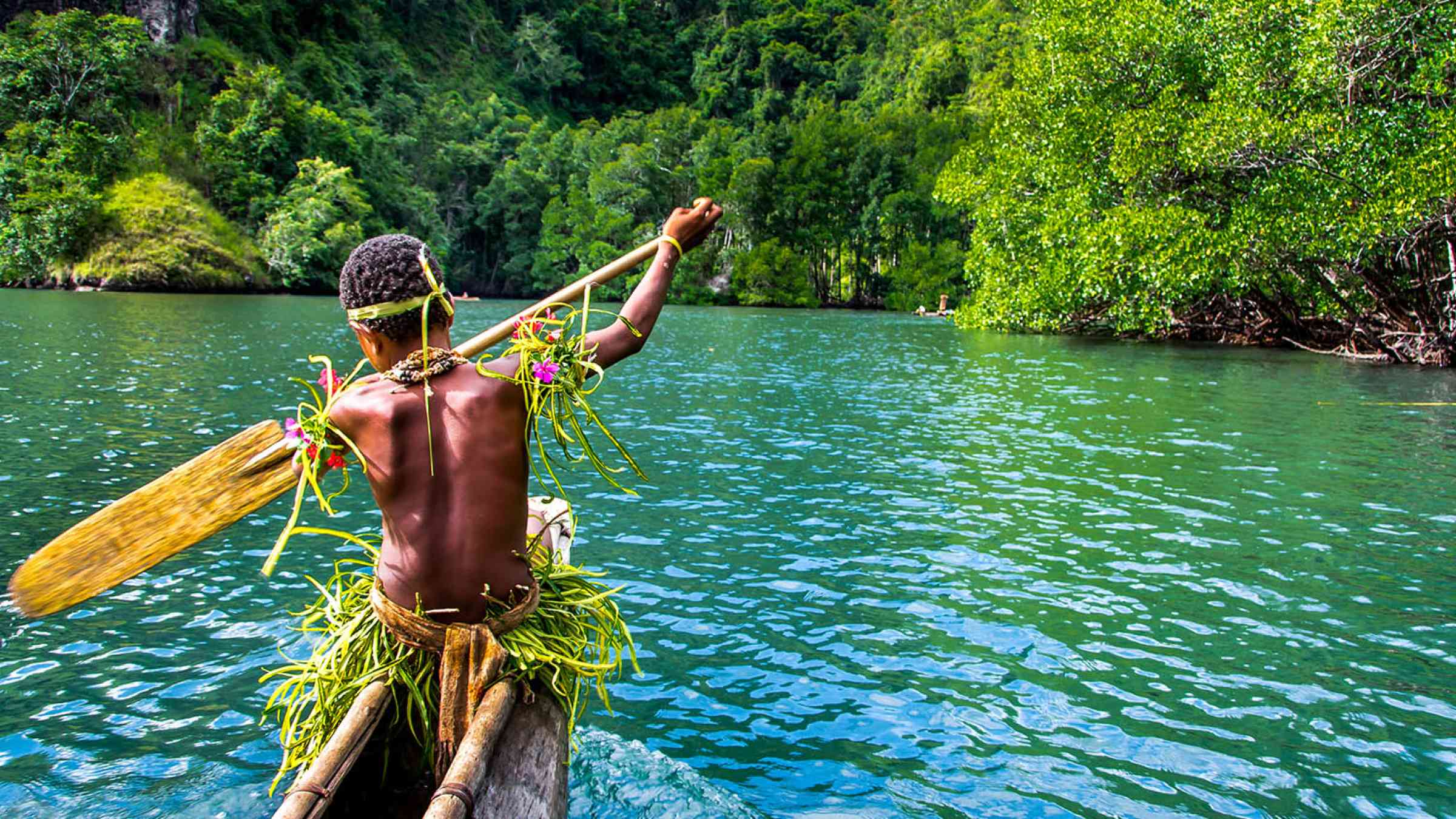Listen to young people: cultural practices can provide answers to the climate problem

Ahead of this week’s COP26 Youth Summit, Papua New Guinean climate advocate Vinzealhar Nen urges world leaders heading to Glasgow to listen to and learn from climate solutions being championed by young people in members' countries − particularly the small islands states.
Papua New Guinea is a small island state in the Pacific. Coming from an island nation, every day I hear stories of climate change affecting our communities.
I see food production decreasing due to the drastic change in weather patterns. It is heart-breaking to see my people in Papua New Guinea suffering, but also those in neighbouring countries. We try to mitigate and adapt to the impacts of climate change but leaders’ pledges to simply 'slow down' the destruction are not enough.
For us islanders, so much is at stake. When my island gets washed away, it means more than just migrating to the mainland and starting over. My culture gets washed away too. I am forced to leave behind my way of life. This is the reality.
We are grateful for meetings such as the upcoming COP26 climate summit; they give us small islands a chance to sit at the table and talk. But how much more talking can we do?
As we are talking, trees are being uprooted from rising sea levels crashing their way into local villages; floods, cyclones and earthquakes are devastating islands in Fiji, wrecking lives and livelihoods.
Money matters
One of COP26’s goals is to mobilise finance. We need to prioritise getting money to island nations and other climate-vulnerable countries, including down to the community level.
There are isolated communities that are confused by what is happening around them. Papua New Guinea is geographically diverse and has some of the lowest literacy levels in the world. Advocates like me try to educate on climate issues the best we can, but it is not enough.
We need financial resources to support mitigation and resilience exercises. Small green start-ups, for example, can help our people get into agriculture so they can sustain themselves in these challenging times.
We are resilient and innovative
But we islanders are never ones to sit back and suffer in silence. We are known for our resilience and always look for ways to help ourselves. This makes it easier for us advocates to do our work – people are open to ideas, they want to be part of the solution, they listen to our suggestions.
Advocates from the Pacific islands are proactive, and we improvise. We have built seawalls from natural materials and integrated modern technology to build resilient infrastructure and agriculture to avoid loss of biodiversity.
In a project I supported last year under Papua New Guinea’s hub of the Sustainable Ocean Alliance we helped the community in Kaivilo Village, Madang Province start a coral farm, this we learnt from watching YouTube videos. Youth were the manpower behind constructing this coral farm and the beach clean-up too. After we’d finished the project, the community continued to expand their farm, increasing life in their reefs.
Growing momentum for change: youth advocates as a driving force
The low literacy rates in my country does bring challenges – but this has not stopped my progress. Writing is my passion and for many years I have used the power of the pen to advocate for climate action.
Through writing, I won a competition to address the UN General Assembly in New York in 2019. And through this I was able to speak truth to power on the challenges facing small islands, triggering a wave of youth activity across my country.
We, the youth advocates of Papua New Guinea, planted mangrove and oaks across the country – mainly for carbon sequestration but also to educate local communities that planting trees can help the planet. In 2019, we planted over 12,000 trees across 10 provinces. The news of our work reached 18 provinces in total.
Drawing climate solutions from our cultures
Meetings such as COP26 are the perfect opportunity for island nations to share our cultures’ traditional conservation practices that help protect and restore ecosystems. And it is exactly these messages that are so important to highlight this 'super year' that will shape the outcomes for climate change, our precious environment and our people in the coming decade and beyond.
This week I’ll be joining the Youth4Climate event in Milan as a selected participant – the event is an opportunity for young people to put forward their ideas for solutions to some of the most pressing climate issues.
And this is the advocacy message I’ll be taking: let us explore our cultures and see how we can integrate our traditional solutions to address the problems we face today.
An example would be our native conservation methods. Births, deaths and marriage are very important traditions in our culture and when a chief dies, gets married or has a child, we plant a special stick in the ocean and mark a perimeter around this sacred area that remains protected.
After six months, we enjoy a feast and the area can be used again for fishing. We often find there is a surplus of fish and even new species. We’ve recently heard this is a common practice in many island communities.
Strength in numbers
At COP26 I call on leaders from across the Pacific to work together, to be one voice, to find solutions with the bigger nations. To not only think about the help our region needs but of other countries around the world too.
We are islanders and we know an island has more strength than meets the eye. We are our planet’s custodians; let us harness our power and, together, work to save it.